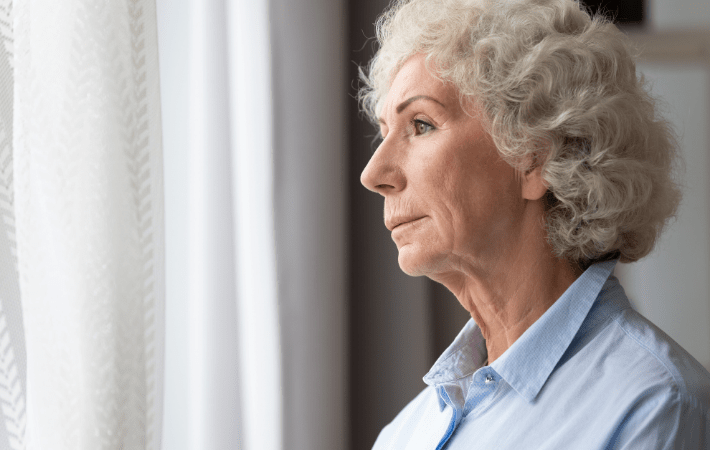
Many areas of behavioral health can be something of a mystery to the general public. Myths and misconceptions about mental health and substance use are often significant obstacles to looking out for the well-being of ourselves and our loved ones. Talking about suicide does NOT plant the idea in someone’s head. Many mental health conditions are preventable. Depression is NOT a normal part of aging.
Let’s focus on that last one. It’s worth repeating; experiencing feelings of depression is not a given as we grow older. However, behavioral health problems like depression often go undiagnosed in older adults.
Older adults as well as their loved ones and even their healthcare providers sometimes dismiss symptoms of depression as “normal” signs of frailty – inevitably, our bodies grow physically weaker as we age. However, the National Institute of Mental Health (NIMH)notes that many equivocate symptoms of depression with the physical weaknesses of aging, leading them to ignore these indicators of a potential mental health issue.
Others believe that feelings of depression are just the natural result of changes in life that typically happen to older adults. Major life events more common to older adults – such as retirement, the death of a loved one, or moving out of the family home – can be stressors that impact our behavioral health.
Facing the loss of someone or something important to us, we all feel sadness at times, but such episodes need not necessarily lead to depression. In fact, “many older adults will eventually adjust to the changes. But some people will have more trouble adjusting,” says the U.S. National Library of Medicine. Being unable to grieve and move on to prior feelings after a loss may be a sign of depression – in individuals of any age.
So What IS Different About Depression in Older Adults?
- Just as symptoms of depression may differ between women and men, older adults may experience a different range of symptoms than younger individuals. Memory problems, confusion, vague complaints of pain, and/or delusions (“fixed false beliefs”) can indicate depression in older adults in addition to more typical symptoms such as loss of appetite, inability to sleep, or irritability (National Alliance on Mental Illness (NAMI)).
- The Centers for Disease Control (CDC)reports that depression is more common in those who have another illness, and “we know that about 80% of older adults have at least one chronic health condition, and 50% have two or more.” This higher likelihood of having a physical illness puts older adults at greater risk of depression.
- For older adults, the interplay of mental and physical health issues works both ways – not only does the presence of some chronic illnesses increase the likelihood of experiencing a behavioral health condition, but some mental health problems like depression – if untreated – can increase risk for heart disease, suppress the immune system, and elevate the danger of infection (NAMI).
- The World Health Organization points out that while older adults may experience the stressors common to everyone that can weigh against behavioral health, they may also experience stressors unique to them. Reduced mobility, chronic pain, bereavement, change in socioeconomic status due to retirement, and frailty or other health problems are all additional factors that can have a negative impact on the mental health or substance use of older adults.
Closing the “Treatment Gap”
The Pan American Health Organization (PAHO) describes a “treatment gap:” while at least 1 in 4 older adults experiences some mental health problem, two-thirds of those individuals do not receive the treatment they need. The first step in connecting those struggling with their behavioral health to treatment and recovery options is to identify the issue.
A great place to start if you’re worried about your mental health or substance use – or that of a loved one – is with a quick, anonymous online behavioral health screening. In about two minutes, you can find out if what you’re experiencing is consistent with symptoms of depression, anxiety, or other behavioral health conditions. If you’re concerned about a loved one – regardless of their age – encourage them to take a screening. No one needs to struggle alone.
If you or a loved one needs immediate mental health or addiction support, do not hesitate to call your insurance company or family doctor, or call 888-545-2600 if you have Medicaid coverage. You can find additional resources that support older adult mental health here.
If your loved one is ever in crisis, contact the National Suicide Prevention Lifeline at 1-800-273-8255 or text the word, “ACT” to the Crisis Text Line at 741741
Author: MindWise Innovations, a Healthy Minds Philly screening partner.
…